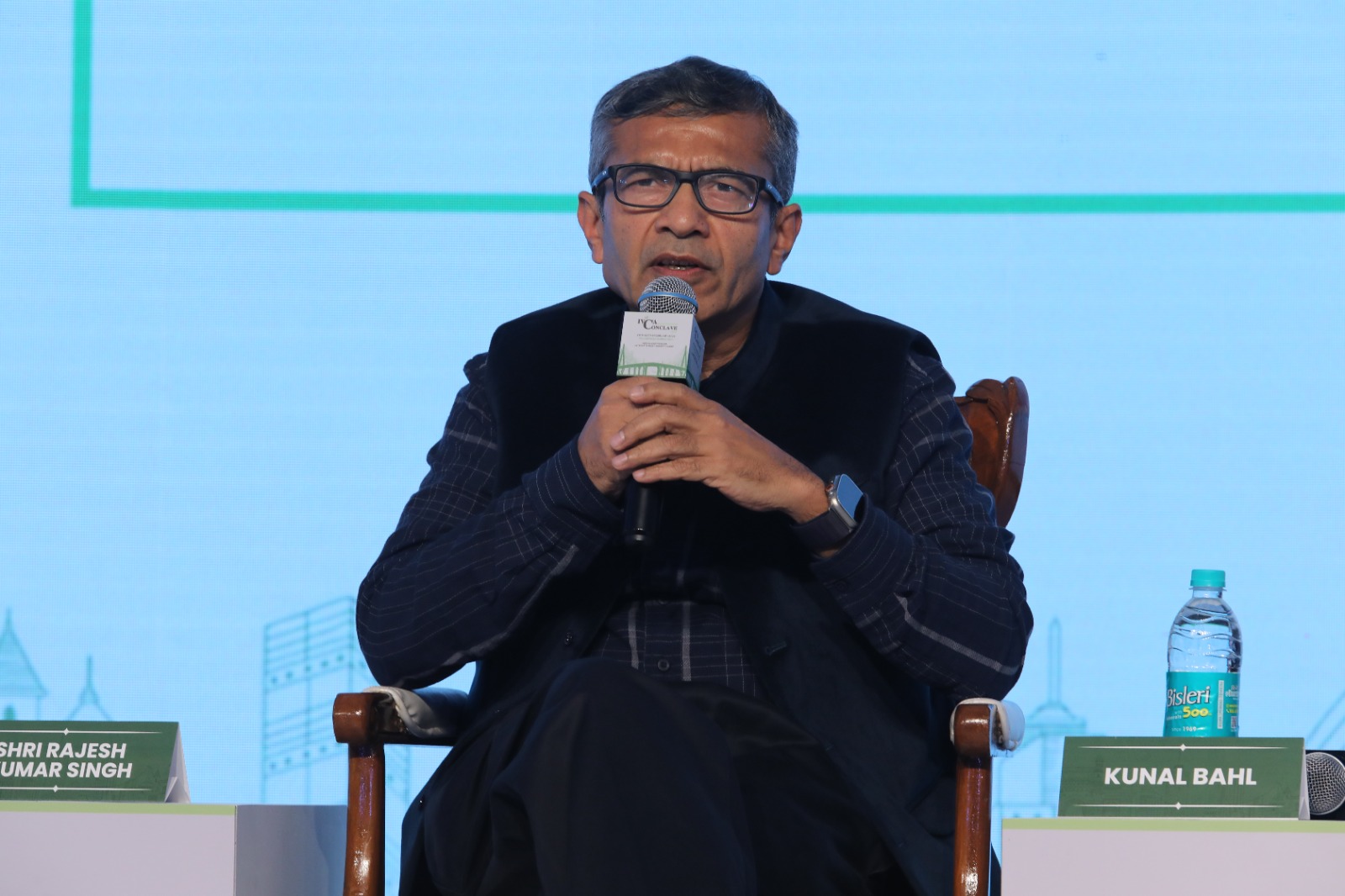Would love unicorns in agritech, energy transition, clean tech: Secretary, DPIIT

FinTech BizNews Service
Mumbai, February 26, 2024: Day 2 of the IVCA Conclave 2024 featured an invigorating fireside chat between Shri Rajesh Kumar Singh, Secretary, Department for Promotion of Industry and Internal Trade (DPIIT), and Kunal Bahl, Co-Founder, Titan Capital, and former CEO and Co-founder, Snapdeal. The discussion, which focused on the growth trajectory of the startup ecosystem, was moderated by Sourav Mazumdar, Editor, Business Today.
On the measures taken by the government and DPIIT in promoting the startup ecosystem, Shri Rajesh Kumar Singh said, “DPIIT has played a minor role in it. Many of you present here and most of all the innovators in our country have played a major role. We tried to encourage this ecosystem and facilitate it through a combination of schemes of funding like fund of funds, seed fund schemes. We have tried to create an enabling environment in areas like IPR, where we have kept the compliance burden low when it comes to startups applying for patents. We’ve tried to create a special runway in government procurement for startups. We have also tried to encourage states to sort of compete with each other and build up an enabling environment for startups by creating a state-wise ranking system. We have also tried to ensure that wherever startups feel that they have some specific issue when it comes to taxation, angel tax or ESOPs or any other such pain point, DPIIT has tried to take up such issues with the Finance Ministry to enable some level of resolution.”
Shri Rajesh Kumar Singh also indicated that avenues have been opened up for startup fundraising: “So far, the startup participants have largely used venture capital from abroad for funding. The government would prefer that they start using other avenues, including the offshore sort of financing framework that we have set up in GIFT City. In terms of other elements of ensuring access to public funds through IPOs, etc.; liberalisation in that area is also coming. I’d say that we’ll probably see some good movement there, hopefully right after the elections.”
On the government’s role in the digital ecosystem, Shri Rajesh Kumar Singh mentioned, “The government has invested heavily, almost on an unparalleled scale, both in physical infrastructure – in roads, rails, and bridges that you see all around – and digital infrastructure, including the payment system and the Digital Stack but there are other elements, which are perhaps sometimes lost sight of. These include the GST network, the GSTN, which is finally converting India into a single national market. We also have similar digital platforms in logistics, called the Unified Logistics Interface Platform (ULIP) and the Logistics Data Bank (LDB), all of which provide access to the private sector and provide them with the opportunity to build good use cases out of that data to improve their efficiency. So, the most important and well-known example is UPI; 46% of the world’s real-time digital transactions are now taking place in India which is a huge number. But there are other areas that are going to follow. The other area related to DPIIT is an area of e-commerce, where we are supporting the Open Network for Digital Commerce, which is trying to democratise the e-commerce set-up in the country by creating a non-platform-centric open network where buyer and seller apps can sort of interface with full visibility for the consumer and provide access to SMBs across the country.”
He revealed, “The data shows that 43% of the startups that we have recognised do have at least one woman on their board of directors, which shows some involvement and leadership in the startup ecosystem.” On the future trends, he mentioned that the government would like to see startups succeed in areas where we have struggled to add value, particularly tech enablement in agriculture, energy transition, and climate tech. Addressing the problems in these sectors can create positive externalities for the economy, and he would love to see unicorns emerge out of those spaces.